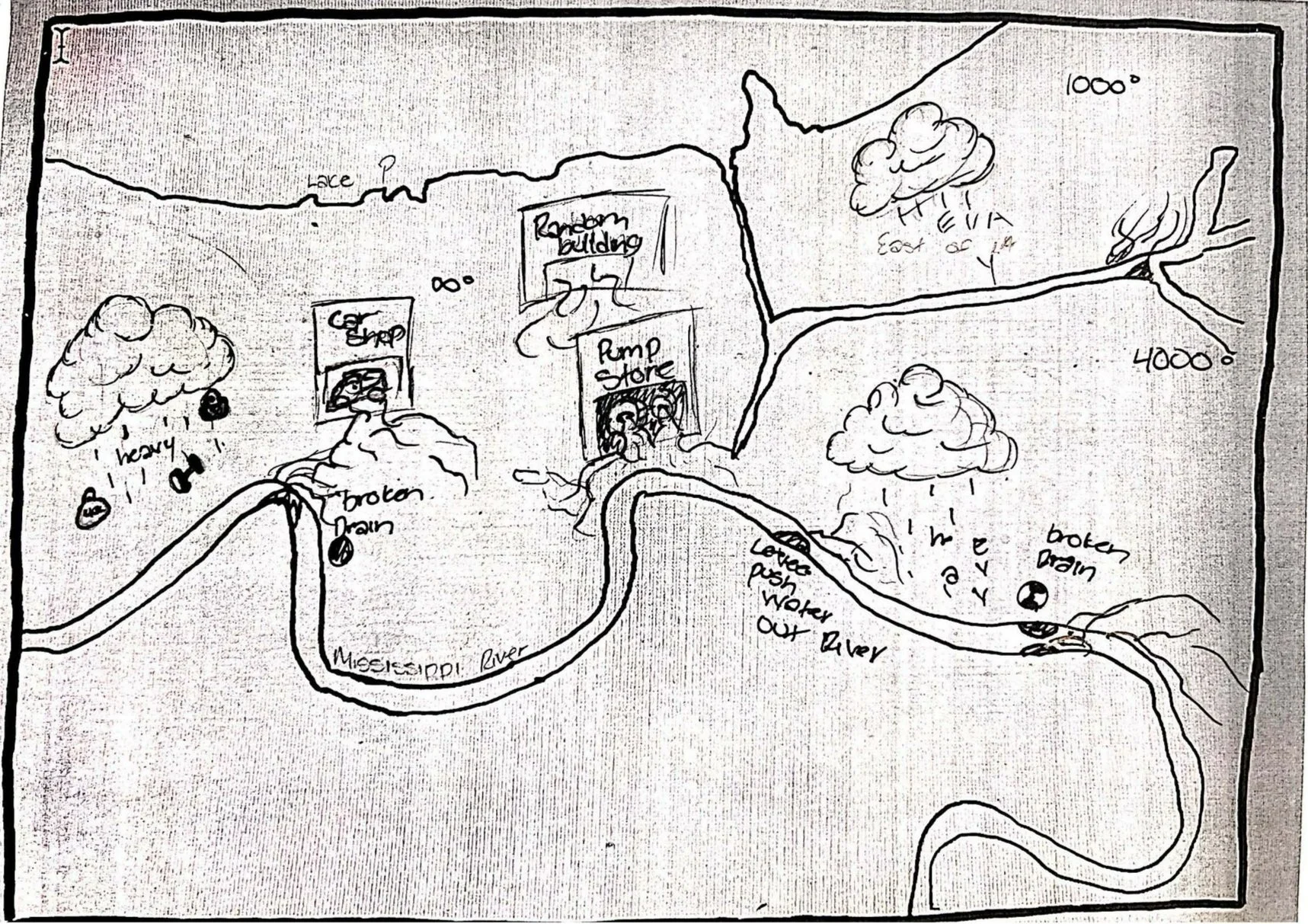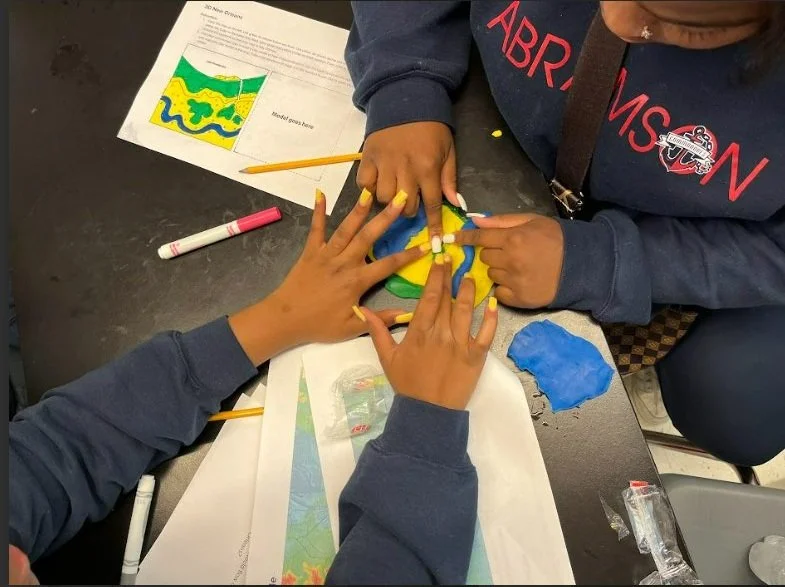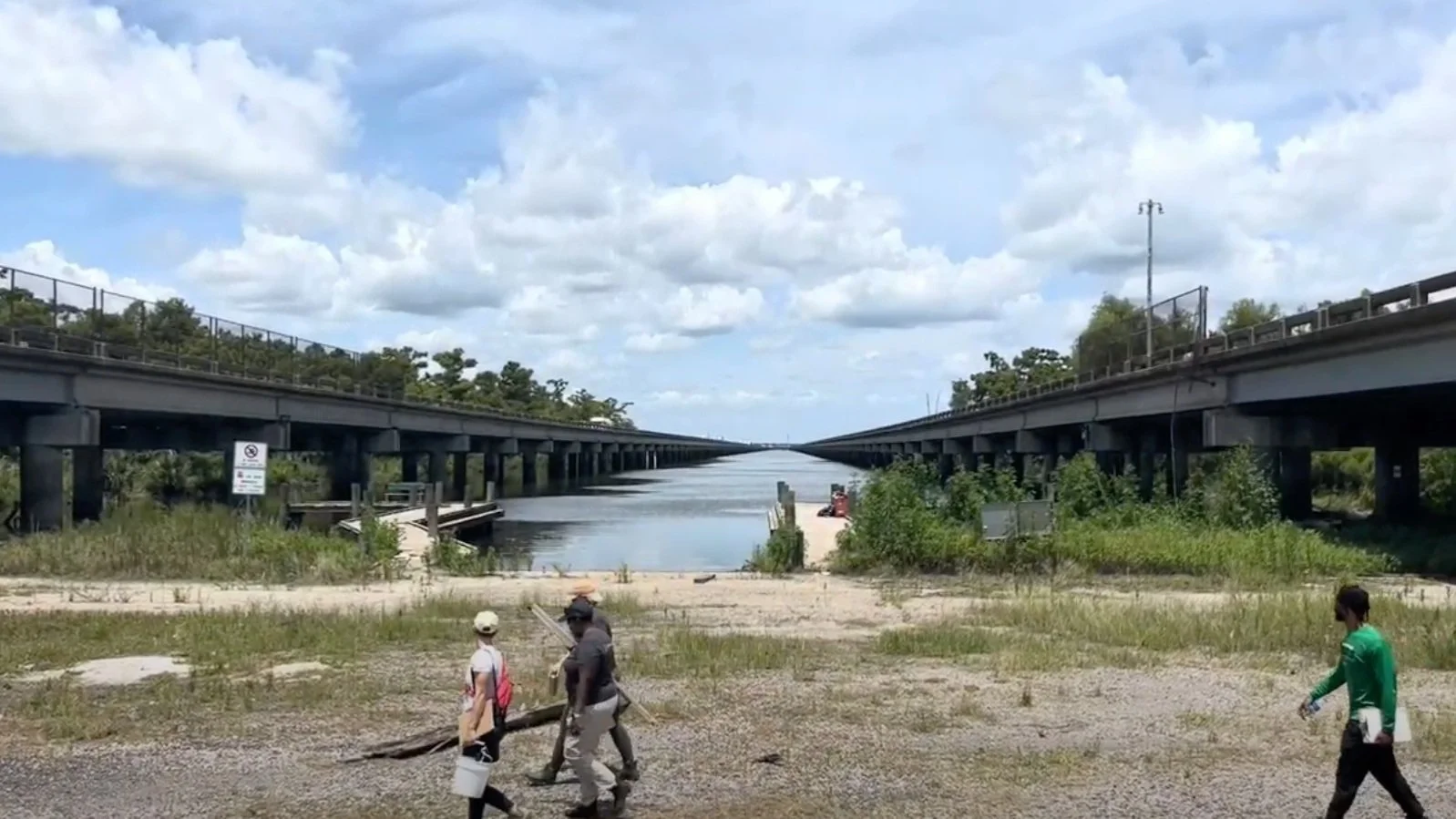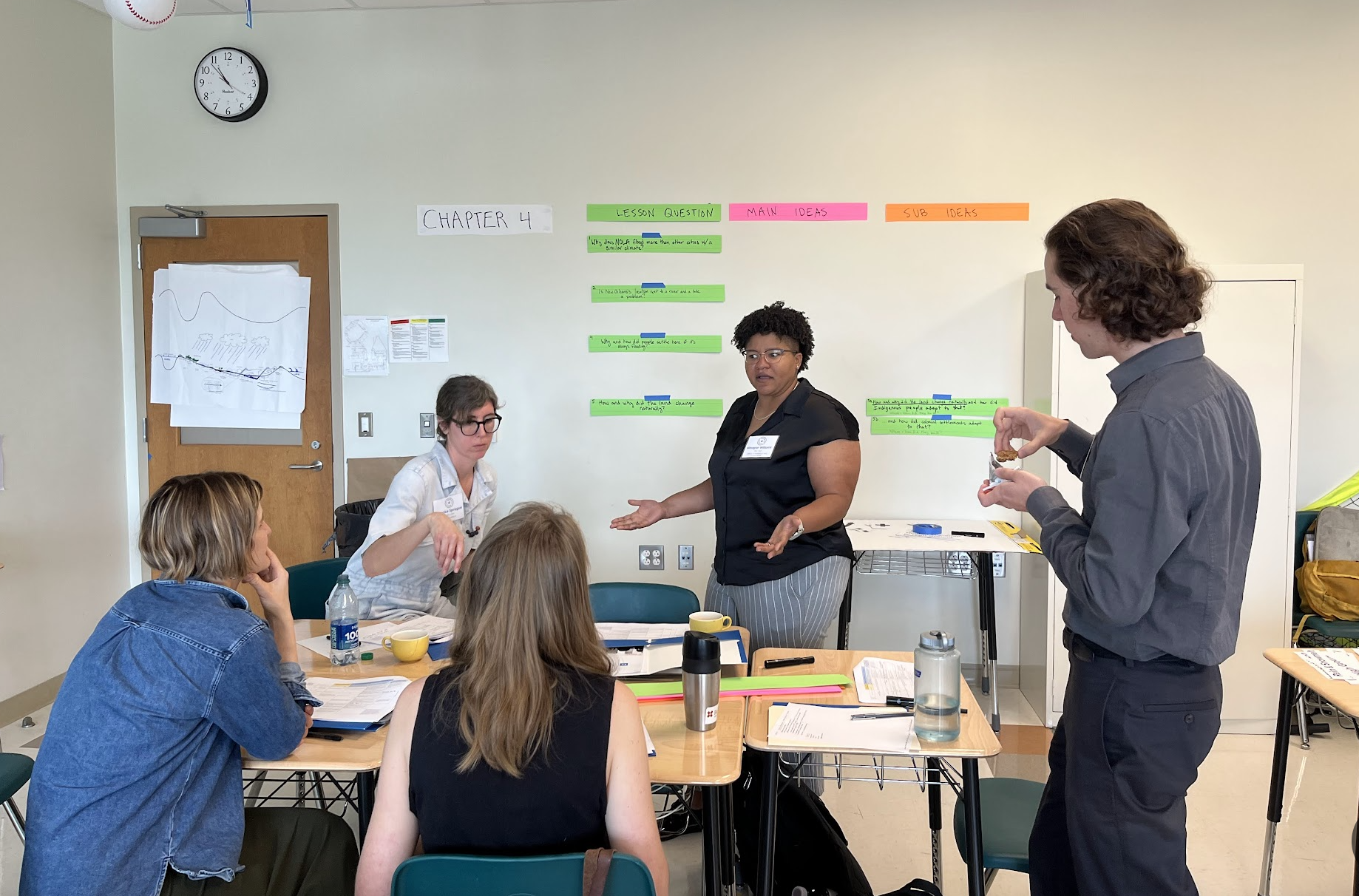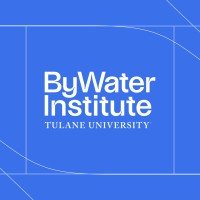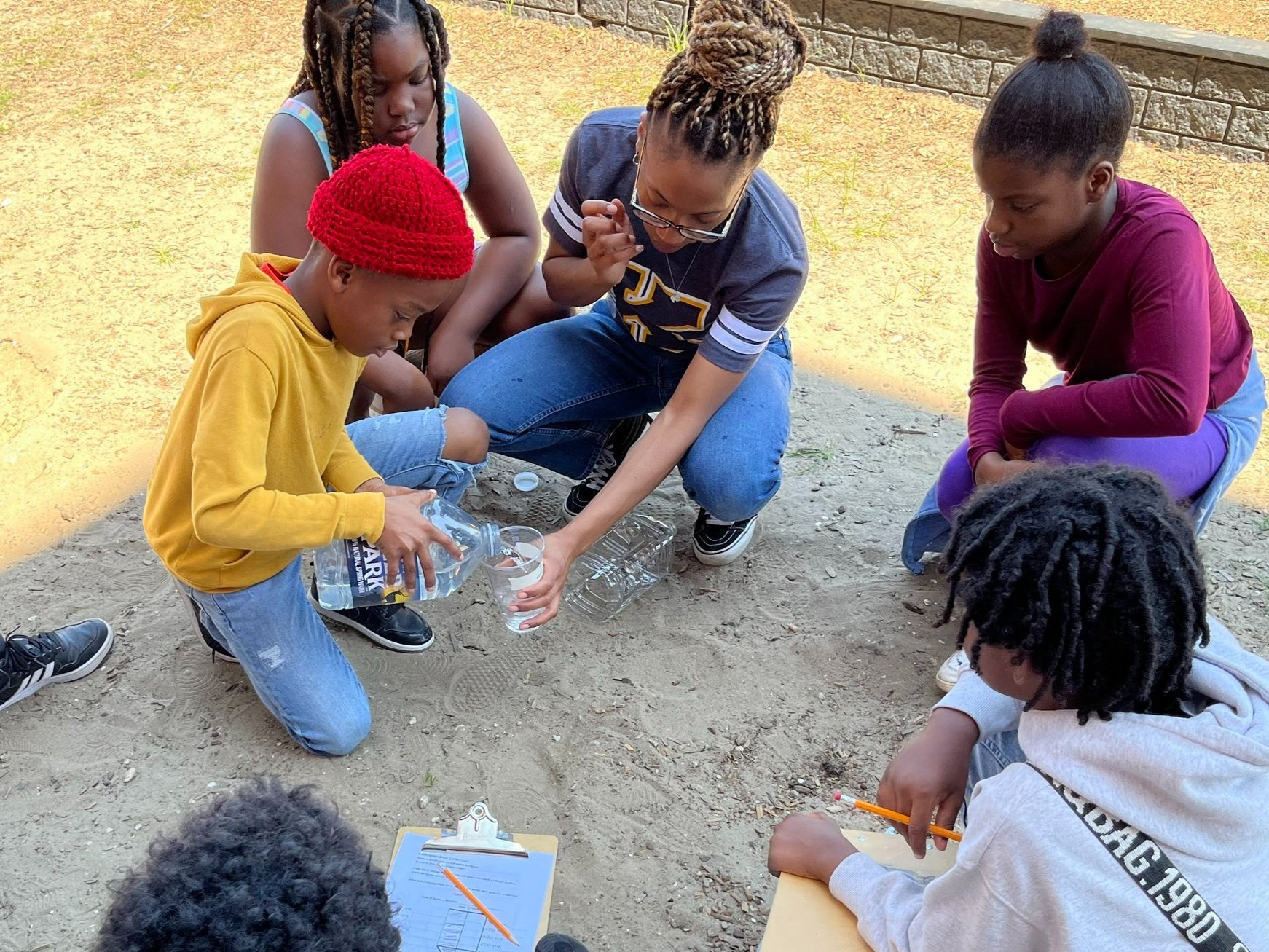Ripples to Waves
Ripples to Waves
Localized OpenSciEd curriculum for 9th grade environmental science courses.
Project initiated 2022, ongoing.
Teacher facilitating a stream table investigation for students to figure out how the Mississippi River forms land in a Collegiate Academies high school environmental science class
Program description
Ripples to Waves is a 5-year project that supports the design, testing, and dissemination of three high school environmental science courses—one centered on stormwater flooding in New Orleans, one on the Gulf of Mexico dead zone, and one on hurricanes. The project is a partnership between Ripple Effect, Collegiate Academies, Tulane University ByWater Institute, and the Lower 9th Ward Center for Sustainable Engagement and Development.
Ripple Effect is leading a multidisciplinary team to develop and field test curriculum and professional development—first through Collegiate Academies and then to other high schools in the region.
Teacher Learning
Ripples to Waves helps high school teachers understand complex environmental challenges while developing their belief, confidence, and skill to guide students through a learning process that is motivated by their questions and ideas.
Teachers begin the program by building their own knowledge of place-based water issues in Southeast Louisiana during field-based excursions. Subsequent curriculum-based professional development days give them an opportunity to continue to develop their science content knowledge, familiarize themselves with the curriculum, and practice facilitating student-led inquiry. They also receive daily live coaching in the classroom from program leaders throughout the unit. Feedback sessions provide opportunities to analyze student work, use data to adjust lesson plans, and practice teaching while receiving feedback from their fellow teachers and program leaders.
Curriculum
The Ripples to Waves curriculum is designed to teach high school students in Southeast Louisiana about urban stormwater flooding, the impact of pollution on marine ecosystems, and hurricanes, three environmental issues of central relevance to lives of residents here.
Each Ripples to Waves unit consists of approximately 9 weeks of instruction, with each lesson lasting 75 minutes. The units are aligned to Next Generation Science Standards and Louisiana State Science Standards. Ripple Effect worked with BSCS Science Learning, the original authors of OpenSciEd’s middle school curriculum, to ensure our adaptations were grounded in their instructional model.
Unit 1: Stormwater Flooding in New Orleans
In this unit, students develop models and conduct investigations to answer the question, “Why does New Orleans flood so much, and is it getting worse?” across four chapters:
Chapter 1: Students learn about the underlying geology of New Orleans.
Chapter 2: Students learn about New Orleans’s history of controlling water and how that approach has contributed to increased flood vulnerability.
Chapter 3: Students learn how climate change is exacerbating the problem by disrupting historic precipitation patterns.
Chapter 4: Students learn about green infrastructure as a solution to stormwater flooding and complete a design challenge where they apply what they’ve learned to disrupt a vicious cycle of more pumps, subsidence, and fear of water.
Units 2 and 3 are currently in development. Stay tuned for updates by signing up for our newsletter!
Impact & Evaluation
Ripple Effect is evaluating the curriculum's impact on students’ knowledge as well as their beliefs in their ability to make a positive impact.
Project Partners
Content Advisors
Meagan Williams, P.E.
Stormwater Engineer, City of New Orleans Office of Sustainability and Resilience
Madeline Foster-Martinez
Coastal Scientist, University of New Orleans
Robert Mahon
Sedimentologist, University of New Orleans
Monique Verdin
Artist and storyteller, director of the Land Memory Bank and Seed Exchange, former member of the United Houma Nation Tribal Council
Special thanks to our funder: National Academies Gulf Research Program
Related Projects
Bringing elementary school teachers and students into the field
Continue exploring our vision for water literacy education in the areas of teacher learning, field-based learning, and strategic partnerships.
Want to stay in the loop on water literacy?
Sign up for our newsletter to receive quarterly updates.



